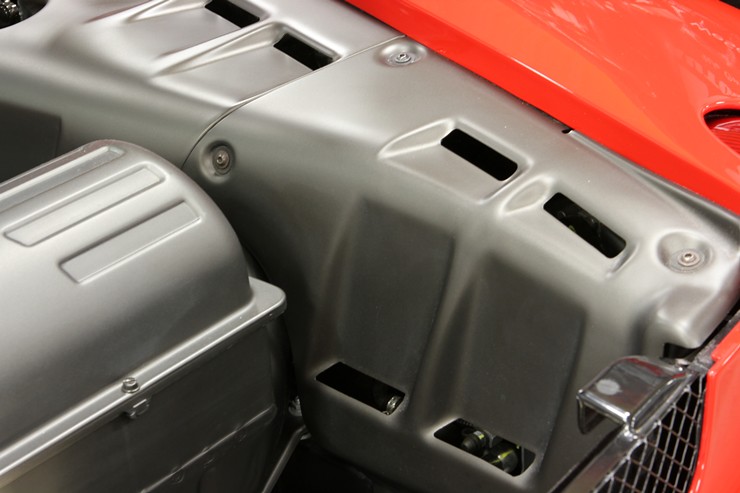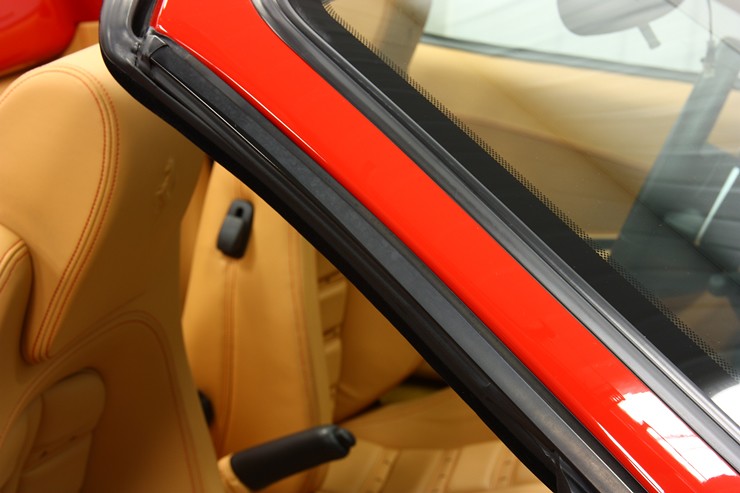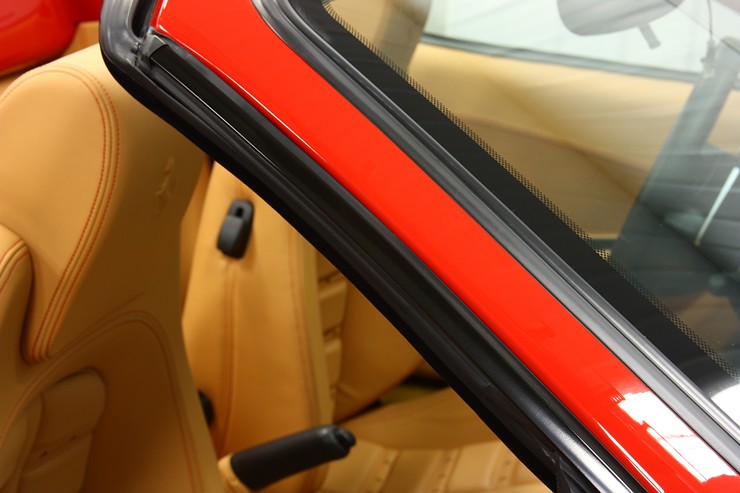Learn something new – Don’t read the instructions!
by Todd CooperiderNormally when somebody is teaching about detailing, and chemicals in particular, you’ll hear the same advice over and over…”follow the manufacturers instructions”. Well that’s said for two main reasons really. For one, they want to make sure that you follow the guidance provided by the manufacturer so that you don’t make mistakes or waste product. And secondly, they want to cover themselves so that in case YOU make a mistake, they can’t be held responsible. That all makes perfect sense to me…
So why in the world would I write an article telling you NOT to read the instructions?!
Well I guess I could have titled it differently and said “Read the instructions, but don’t limit yourself to what it says because you may miss out on some key benefits of the products”. But if I did that, it would make for a really long title, and it probably wouldn’t catch your attention as much either. With the current title that I have, you probably thought that I lost my mind, and therefore you were compelled to read.
OK, so onto what I am trying to say. Yes, I do think you should read the product label, instructions, and any technical information that each manufacturer may provide about their product. They’ve done a lot of testing and typically they’ve found the best ways to use the product to maximize your results (and minimize mistakes). But just because they tested the product for a specific application, and spelled out the instructions accordingly, does that automatically mean that it can’t be used in other ways? In most cases, NO.
Some of the greatest uses I’ve found for detailing products have been for ways that were never intended by the manufacturer. Some of these discoveries were made by accident, pure luck, or simple experimentation but when you come across these findings, you tuck that information away for future reference when you run into challenging situations. And how you handle those challenging situations are a big part of what separates a real professional detailer from an enthusiast.
Now I’m not suggesting that you go out into your detailing arsenal and simply start experimenting with all of your chemicals, and intentionally try them in ways they were never intended. No…your Meguiar’s M105 compound won’t make a good leather cleaner! And your acidic wheel cleaner probably won’t make a good carpet cleaner either. You obviously have to be cautious and use a little common sense. But at the same time, don’t be afraid to think outside of the proverbial box to achieve some really nice results.
While I could probably write a very lengthy article on all of the different uses for products, I’m simply going to give a few examples to make it thought provoking. I wanted to limit this Sunday morning writing session to just a couple cups of coffee, otherwise I would get long-winded (as usual) and the next thing I know 5 hours of my day would be gone and I would miss out on valuable family time!
So here are a few examples:
Chemical Guys EZ Creme Glaze. If you read the label, you’d think of this as a normal “glaze”. But a large percentage of the detailing world uses this product as a paint prep after polishing and before the application of a wax or sealant. It does a great job of cleaning any polishing oils or residue, and provides a great base. One day I had a little bit of tar to remove, and realized that I was out of Stoner’s Tarminator. I looked over at my detailing arsenal and thought: “hmmmm, EZ Creme cleans paint before applying wax, so I wonder if it would work to remove this tar?”. And when I tried it…bingo…I had a winner. And when I discovered the inside windows of an old Lamborghini were covered with dye from where the leather seats were re-sprayed, I grabbed for the EZ Creme and a foam pad by hand, and it easily removed the overspray that simple glass cleaner wouldn’t touch.
Sonax Nano Tech Paint Cleaner. For those of you who have read my product review on NTPC, you know that while this is one of their “retail” products designed for use by hand on paint, I found that it works very well by D/A machine application on soft paints. It also works quite well on polishing up carbon fiber by hand in areas that can’t be reached by machine, or for those who don’t own a D/A buffer. Last week I was working on a Ferrari 430 Spider, and noticed that the coated plastic engine bay trim had been discolored and stained by harsh chemicals at some point in its life. First I tried a couple of quick detailers (ONR in particular) just to see how bad it was, and they didn’t make a bit of difference. I then reached for the NTPC and tested a small, inconspicuous area to see what it would do. As you can see from the photos below, it made a huge difference and I ended up using it for the entire engine compartment.
Before:

After:

The next product is one I’m currently evaluating, and it may end up being offered by DI in the future. It’s designed to be a paint prep after polishing and before waxing…to clean the surface completely so that you get the maximum durability out of your wax. As you can see from the black trim on the A-pillar of this Ferrari 430, it is heavily oxidized, and looks really bad (common with 360’s and 430’s, even though they don’t spend much time in the sun!). While I was using this particular paint prep on the A-pillar, my applicator with product on it rubbed against the black trim, and I noticed how much of a difference it made. The light bulb went off over my head, and I continued to polish out the delicate trim by hand with this product, and to say it was a night and day difference would be an understatement. With that information, I tried it on the wiper arms as well and found that it equally made a huge improvement. By pure luck, I discovered a completely new use for this product that the manufacturer doesn’t claim.
Before:

And after:

These are obviously just a few examples, but hopefully it was enough to make my point clear…in many cases your detailing products can serve many more purposes than are listed by the manufacturer’s instructions. And when you learn just how many ways they can be used you’ll produce better work and do it in a more efficient manner.
So don’t be afraid to do a little experimentation as you just may discover some creative new uses for your existing detailing arsenal. But…do it with caution, and realize you’re experimenting at your own risk!











Todd, another great article from the master. Thanks again for helping me out last week. I owe you greatly.
Thanks Kevin, and my pleasure!
I recently learned that glass cleaner is great for cleaning up 85rd residue and it also works well when polishing up exhausts with #0000 steel wool
Thanks for the tip…it’s always great to make these kinds of “discoveries”.
Great article bud! Definitely a must for everyone to think outside the box sometime and just experiment with things.
Thanks Ivan!
Thank you for the tips Todd!
My foamy glass cleaner (1Z) seems to be helping when applied over bird bombs on paint as a parallel use.
Would you say that EZ if used in the alternate way you describe will also remove any wax layer?
I wax every 4-5 weeks and I was thinking if I could use EZ after washing and before waxing (without any claying or polishing steps) to clean/prep the paint a little bit and provide a little coverage. My wax is Glasur.
Thanks Kostas, and about your question…the only way to find out for your car/combination is to experiment. It certainly couldn’t hurt to try!
Thanks for the reply Todd. I will do during Christmas, as I manage to get some time off work.
Ummm, Probably some sort of wax buildup there from the owner not knowing any better… Looks good till the engine and exhaust heat hits it.
Hmm, I wonder why you would know so much about this particular vehicle?
Good article Todd. I’m sure you have a lot of secret tricks that you have hidden in your detailing vault. Keep up the good work buddy. Wish we could’ve connect this SEMA but there is always next year.
Thanks Tim, and I hope to see you in Vegas next year!
Great article Todd! I always love finding little tricks by accident or experimentation. More than once, a discovery like that has eliminated another product from my arsenal as the experimental one now serves an additional role. Great job on that Ferrari too!
Thanks Jeff, and yes…you certainly can eliminate redundant products through experimentation.
Thank you for the tips Todd.
Great article.
My pleasure Mark, and thanks for reading! It was a pleasure meeting you at SEMA this year and glad to see you made the trip all the way from Australia.
What is this paint prep product that you used on the A-pillar trim?
Sorry, but you’ll have to stay tuned for that bit of information!
Another great article this time with a ‘must read title’ you got my attention. On occasion in my downtime I find my self doing the same thing. Thanks for sharing and I will have to try the D/A on the CF and see how it fairs. Don’t forget to let us know your last little secret if you may.
I believe there was a reason why it wasn’t told right away Steve.
Thanks James!
Great article Todd!
Thank you!
I do it all the time! finding new products to do mulitple things leads to lower detail times! instead of say preping the paint TRYING not to get it on the rubber trim, just go over it all with one product…works like a charm and saves time!
Have anyone tried using Rubbing Alcohol to clean Windshield and Windows? i have tried and it works great
Great article. I like to cross-train my car care products for in home use, too. The clay brick was usefull in removing stubborn scuffs on my hardwood floor. I also took my DA and Klasse AIO to my Weber grill lid with great results. However, my neighbor caught me doing it and said I need professional help. Of course, he could be drumming up work for his wife who’s a psychiatrist… Last thing I can think of is using cleaner wax on my table saw top to help materials slide across it better- worked really well.
Hello, I bought Chemical Ez Cream Glaze and I plan on using it as a paint prep after I finish with my final stage of polishing. My question is, after I finish with that final stage of polishing, should I wash the car before I apply the glaze, or go straight to the glaze?
Thanks
HI TODD! I JUST HAPPEN TO READ YOUR TIP ABOUT USING GLAZE TO REMOVE TAR AND TRIED IT ON THE BURNT IN COUMPOUND/WAX FROM A DEALER “DETAIL” .WORKED GREAT!!!!!THANK YOU FOR ELEVATING ME TO THE NEXT LEVEL WITH ALL YOUR ARTICLES!!!!JOHN.
I find that Autoglym Fast Glass is great for polishing cockpit,interior plastics,interior chrome….oh,as well as interior glass! Spray a small amount onto your microfibre and work small areas then polish off with clean microfibre…